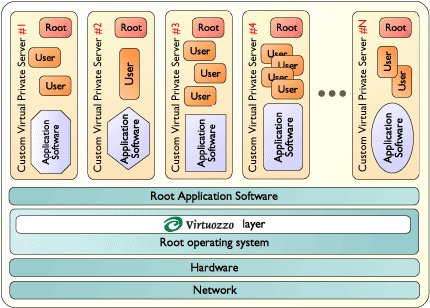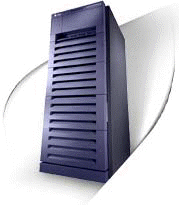How It Works:
Each VPS behaves exactly like an isolated stand-alone server:
- Each will have its own processes, users, files and provides full root access.
- Each has its own IP addresses, port numbers, tables, filtering and routing rules.
- Each could have its own configuration files for the system and application software.
- Each could have its own versions of system libraries or modify existing ones.
- Each could delete, add, modify any file, including files in /root, and install its own application software or custom configure/modify root application software.

VPS's offer Quality of Service guarantees standard shared hosting can not:
- Resource Guarantees: Includes CPU, disk space and network guarantees.
- Guarantees on memory - user and kernel, physical and virtual .
- Guarantees on disk I/O and many other critical resources.
- Performance Isolation - heavy traffic and CPU load on one Private Server will not have a negative effect on the other Private Servers.
- Functional Isolation - each Private Server has its own set of applications and services.
- Fault Isolation - errors created on Private Server will not affect other Private Servers. For example, a bad CGI script can crash a server, but only the Private Server with the script will be affected.
- Address Isolation - each Private Server has its own set of IP addresses.
|

